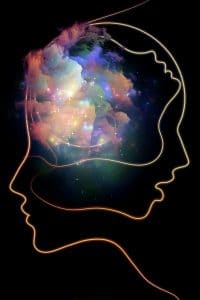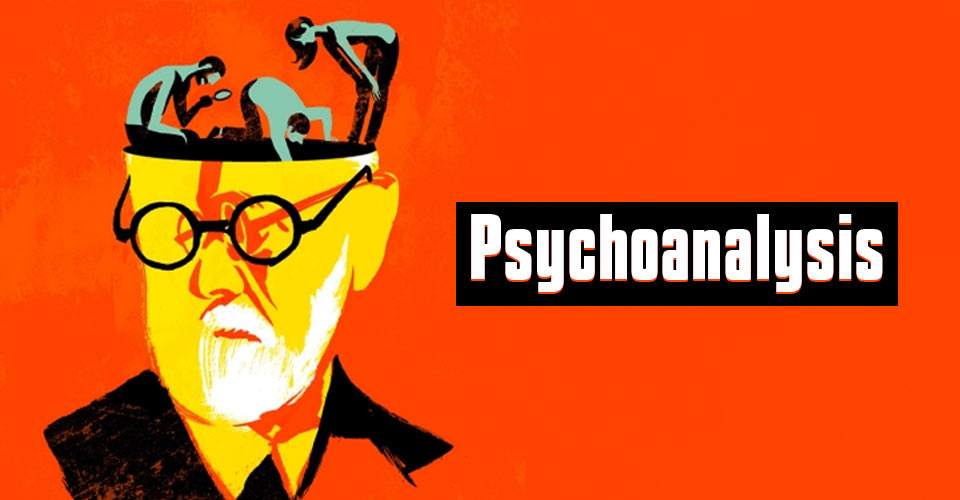What is psychoanalysis? How does it work? Is it effective? In this blog post, we will explore psychoanalysis that will help you answer these questions. Psychoanalysis is a therapeutic approach that has been around for over 100 years. It is based on the idea that our unconscious thoughts and feelings can cause psychological problems. In order to treat these problems, we need to become aware of our unconscious thoughts and feelings. This can be done by talking with a therapist who specializes in psychoanalysis.
Contents
What Does Psychoanalysis Mean?
 Psychoanalysis is a psychological approach that emphasizes the importance of the unconscious in understanding human behavior. It was founded by Sigmund Freud in the late 19th century. And has been extensively studied and practiced ever since.
Psychoanalysis is a psychological approach that emphasizes the importance of the unconscious in understanding human behavior. It was founded by Sigmund Freud in the late 19th century. And has been extensively studied and practiced ever since.
It is more often defined by what it is not than by what it is. It is not a set of techniques or a method of treatment. But rather a way of understanding people and their behavior.
The goal of psychoanalysis is to help people understand and deal with their unconscious thoughts and feelings. Which can often be difficult to access or understand on one’s own. People can explore their past experiences and current relationships with the help of therapists. In order to better understand why they behave the way they do.
Theories In Psychoanalysis
The theories in psychoanalysis are vast and varied. There are many schools of thought, and no one theory is universally accepted. However, there are some common themes that run through most psychoanalytic theories.
One central idea is that of the unconscious mind. The unconscious is the part of the mind that contains all of our hidden desires and fears. It is inaccessible to conscious thought, but it has a powerful influence on our behavior.
Another key concept is the idea of repression. Repression occurs when we push unpleasant thoughts and memories into the unconscious mind. This can be harmful because it can lead to emotional problems such as anxiety and depression.
Psychoanalysis also emphasizes the importance of childhood experiences. Our early experiences play a crucial role in shaping our personalities. Sigmund Freud was the founder of psychoanalysis and his theory is the most widely known. However, there are many other theories that are worth exploring.
Ego Psychoanalysis
It is important to note that not all psychoanalysts agree with Freud’s theory. One alternative is ego psychoanalysis, which was developed by Carl Jung and Alfred Adler. It is developed in the year 1924. Ego psychoanalysis places more emphasis on the ego or the part of the personality that is responsible for reality testing and problem-solving.
Ego psychoanalysis focuses on the ego. It is the part of the personality that is responsible for reality testing and problem-solving.
Object Relations Theory
 Another popular theory is object relations theory, which was developed by Melanie Klein. This theory focuses on the relationships that we form with other people early in life. These relationships play a key role in shaping our personalities.
Another popular theory is object relations theory, which was developed by Melanie Klein. This theory focuses on the relationships that we form with other people early in life. These relationships play a key role in shaping our personalities.
Psychoanalysis is a complex topic, but these are some of the most important concepts to understand. It is a fascinating field and there are many different theories to explore. If you are interested in learning more, I recommend reading Theories of Psychoanalysis: A Comprehensive Overview by Jeremy Holmes.
Self-Psychology
Self-psychology is a newer branch of psychoanalysis that was developed by Heinz Kohut. It places more emphasis on the development of the self. Kohut believed that our sense of self develops during childhood, and it is important to have a healthy sense of self in order to function effectively in society.
In this, psychoanalysis is in line with object relations theory, which posits that our relationships with others are crucial in the development of our personalities.
How Does Psychoanalysis Work?
Well, it is hard to describe exactly how psychoanalysis works because it is a highly individualized process. However, in general, the therapist and patient will meet for regular sessions where the therapist will listen to the patient’s thoughts and feelings. And eventually, help them explore their unconscious thoughts and memories. In order to offer support and guidance.
The goal of psychoanalysis is to help patients understand themselves better so that they can make changes in their lives if needed. It can be a long process that requires patience and commitment. But many people find it to be very helpful in managing mental health issues.
Benefits of Psychoanalysis
 When you understand how it works, it’s not hard to see why psychoanalysis can be so beneficial for mental health. Here are some of the main benefits:
When you understand how it works, it’s not hard to see why psychoanalysis can be so beneficial for mental health. Here are some of the main benefits:
- Help you understand yourself and your behaviors better.
- Resolve emotional conflicts and issues from the past.
- It can help improve your relationships with others.
- Can improve your mood and mental health.
- Helps you cope with stress and anxiety.
- Can help you deal with addiction issues.
- May improve your quality of life overall.
- Is a long-term treatment, which means that the benefits can be sustained over time.
If you are considering psychoanalysis, it is important to talk to your therapist about whether or not it is right for you. There are many different types of therapy available, so don’t feel like you have to stick with psychoanalysis if it’s not working for you.
What Are The Psychoanalytic Techniques?
Sigmund Fred has developed these psychoanalytic techniques. And, people are using these techniques so effectively to treat patients. The most common techniques are; free association, dream analysis, the use of transference, and resistance analysis.
Free Association
 In this, the patient is encouraged to say whatever comes to mind. This allows the therapist to gain a better understanding of the patient’s thoughts and feelings.
In this, the patient is encouraged to say whatever comes to mind. This allows the therapist to gain a better understanding of the patient’s thoughts and feelings.
The therapists pay attention largely to the individual’s free association. Free association is the most important tool in psychoanalysis. That includes the interpretation of dreams. The therapist can help the patient to understand and resolve conflicts by identifying the unconscious material expressed in dreams. Now, free association is the cornerstone of the treatment.
Dream Analysis
In dream analysis, the therapist tries to interpret the symbols and meaning of the patient’s dreams. This can give the therapist a better understanding of the patient’s unconscious thoughts and feelings. Moreover, under this technique, the therapist tries to help the patient understand his or her dreams and resolve any conflicts that may be present in them.
Under this technique of dream, it is said that the therapist can help the patient to resolve conflicts in his or her life. It is also said that dreams are expressions of the unconscious mind and they may contain clues to unresolved conflicts and problems.
Use Of Transference
In psychoanalysis, the use of transference is considered a very important tool. Transference occurs when the patient transfers feelings or emotions from past relationships onto the therapist. This can give the therapist a better understanding of the patient’s emotional life.
This technique is so important that the therapist is not allowed to have any personal relationships with their patients. Also, recent studies suggest that transference is not just a phenomenon that occurs in the therapeutic relationship. But it also occurs in all relationships.
Resistance Analysis
 In resistance analysis, the therapist tries to understand why the patient is resisting treatment. This can help the therapist address any issues that may be preventing the patient from progressing in therapy.
In resistance analysis, the therapist tries to understand why the patient is resisting treatment. This can help the therapist address any issues that may be preventing the patient from progressing in therapy.
These are some of the most common psychoanalysis techniques. However, there are many other techniques as well, choose what works for you. It is important for therapists to be flexible and adaptable when using these techniques.
The goal of psychoanalysis is to help patients resolve their conflicts and problems and improve their mental health. The techniques used in this type of therapy can be very effective in achieving this goal. If you are considering seeking treatment for a psychological problem, you may want to consider psychoanalysis. It is a very effective form of therapy that has been around for many years.
Conclusion
Conclusively, psychoanalysis is a process that can help people understand and resolve their emotional conflicts. It does this by providing a safe and supportive environment. Through this, the person can explore their thoughts and feelings. This process can be helpful for people who are struggling with issues such as depression, anxiety, or relationship problems.
Psychoanalysis can be an effective treatment for many different kinds of emotional problems. Once you have found a therapist, you can begin the process of exploring your innermost thoughts and feelings. Thank you for reading!
A Word From Therapy Mantra
Your mental health — Your psychological, emotional, and social well-being — has an impact on every aspect of your life. Positive mental health essentially allows you to effectively deal with life’s everyday challenges.
At TherapyMantra, we have a team of therapists who provide affordable online therapy to assist you with issues such as depression, anxiety, stress, workplace Issues, addiction, relationship, OCD, LGBTQ, and PTSD. You can book a free therapy or download our free Android or iOS app.


